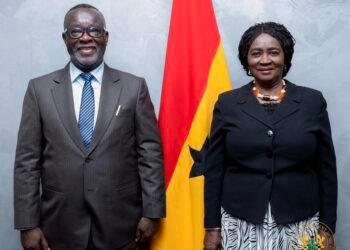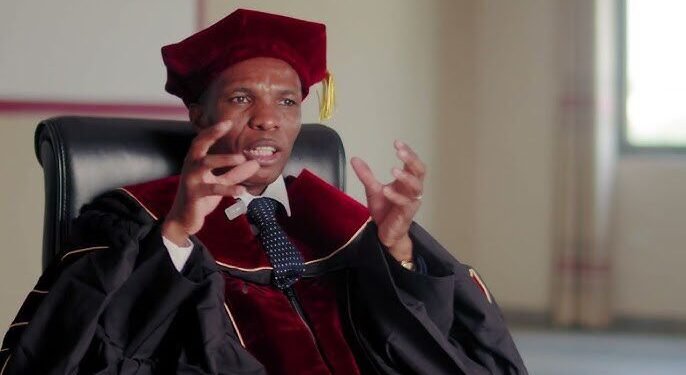In a democracy, the role of security forces during elections is often a matter of public debate.
A recent comment made by the Achiase Commander Lt. Col. Jacob Cudjoe ”I’ll beat the hell out of you, if you misbehave on election day’’ in an attempt to take strong actions against potential troublemakers during Ghana’s December 7 election has sparked discussions.
Martin Kpebu, a private legal practitioner, has condemned such a statement and cautioned against the involvement of the military in civilian activities such as elections.
In an interview, he analyzed the situation and provided recommendations for maintaining peace and order during the elections.
“Eye Service” and Political Ambitions in the Military
“In the military, I’m not surprised. There is something they call eye service or face fine. Basically, you do stuff like this to catch the attention of the superiors and the commander in chief – the president- for promotions.”
Martin Kpebu private legal practitioner
He found it troubling that such rhetoric existed for decades in Ghana’s democratic journey.
“We embraced democracy some years ago, decades now. So, we are in over 32 years. Right? And so, you still have the [studia] coming to talk like we are still in the days of the PNDC or AFRC and the rest of the other military junta. Then I can only ascribe it to eye service or face fine.”
Martin Kpebu private legal practitioner
Kpebu emphasized that such comments are inappropriate in a democratic era and should be firmly condemned.
The Military’s Constitutional Role
Kpebu referenced the constitutional mandate of the military. He emphasized;
“If you look in Article 210 of the constitution, it says that the military should what? Defend Ghana. That is why we normally refer to [them as being] against external aggression.”
Martin Kpebu private legal practitioner
He criticized the idea of soldiers being called to manage election-related issues.
“Nobody has asked [them] to come and beat citizens. He has no right to beat citizens. The military had their days when they ruled, they even sometimes did worse. So, they should just stay quietly in the barracks.”
Martin Kpebu private legal practitioner
Concerns About Past Military Involvement in Civilian Matters

He highlighted similar statements from military officials that reflect a mindset of forceful discipline, which he argued is incompatible with Ghana’s democratic principles.
“Even when they went to bury Kaaka, you saw what happened. Then the commander at the time came and said for them, they shoot to kill. That is what he said. That’s Brigadier General Aphour at the time. He said they shoot to kill.”
Martin Kpebu private legal practitioner
Such incidents, according to Kpebu, underline the importance of keeping the military away from polling stations to prevent similar tragedies.
Police as the Primary Security Force

“The police can do it. The police have SWAT teams, etcetera. The police can do it. And once we give them our cooperation and assistance, we don’t want military there.”
Martin Kpebu private legal practitioner
Although he acknowledged the role of the military in our democracy, however, he charged;
“For backup, we cannot totally say they should take it off the radar. It can stay on paper. Backup doesn’t mean [bringing] them physically there, No. You can have them at the barracks and other points out of public view.”
Martin Kpebu private legal practitioner
The Way Forward
To maintain the credibility and peace of Ghana’s elections, Kpebu emphasized;
“One thing is very clear; We don’t need a backup immediately in the polling stations. They can be somewhat strategic, but out of view, out of sight, and out of sound.”
Martin Kpebu private legal practitioner
Kpebu concluded by reiterating that the involvement of the military in elections should be minimized, and their actions should align with democratic principles.
Martin Kpebu’s remarks reflect a broader concern about the role of security forces in a democracy.
He underscored the need to uphold Ghana’s democratic values by ensuring that elections are managed primarily by the police, with the military playing a secondary and discreet role.
As the 7th December elections approach, his input is a roadmap for maintaining peace while safeguarding the democratic process.
READ ALSO; Bolanle Ninalowo Shares How He Navigated Sensitive Request From Daughter























